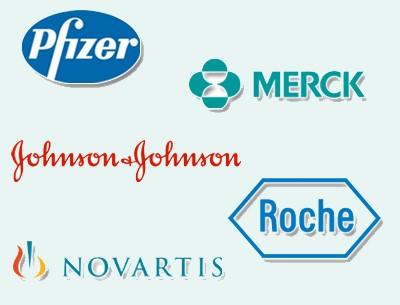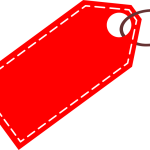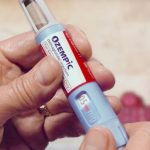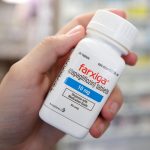How Do Drug Manufacturer Coupons Work?

What Is A Drug Coupon?
Drug coupons are promotional tools offered by pharmaceutical companies to provide discounts or rebates on prescription drugs. These coupons are intended to make medications more affordable for patients, particularly those who may not have adequate insurance coverage or who may be facing high out-of-pocket costs.
Drug coupons may be distributed through a variety of channels, such as doctor’s offices, pharmacies, or directly to patients via email or online advertising. Patients can typically use these coupons when they fill their prescription at the pharmacy, and the discount will be applied to the cost of the medication.
It’s important to note that drug coupons often have specific terms and conditions that must be met in order to be used, such as a limited time period or restrictions on the types of medications or dosages that are eligible. Patients should always read the fine print and understand the terms of any drug coupon before using it.
While drug coupons can be a useful tool for patients to save money on their medications, it’s important to consider other cost-saving options as well, such as generic alternatives, patient assistance programs, or other prescription drug discount programs. It’s always a good idea to talk to a healthcare provider or pharmacist about the most affordable options for obtaining necessary medications.
How Do Drug Manufacturer Coupons Work?
Drug manufacturer coupons are promotional tools that pharmaceutical companies use to encourage patients to use their medications. These coupons typically offer discounts or rebates on prescription drugs, making them more affordable for patients who might otherwise struggle to pay for their medications.
The way drug manufacturer coupons work is fairly straightforward. The pharmaceutical company creates a coupon and distributes it to doctors, pharmacies, or directly to patients through various channels such as online ads or social media. Patients who receive the coupon can present it at the pharmacy when they fill their prescription, and the discount will be applied to the cost of the medication.
It’s important to note that drug manufacturer coupons usually have specific terms and conditions that must be met in order to use them. For example, some coupons may only be valid for a certain period of time or for a specific medication, while others may require patients to meet certain eligibility criteria, such as being uninsured or having a high deductible.
Additionally, while drug manufacturer coupons can be a helpful tool for patients who need assistance paying for their medications, they may not always be the most cost-effective option in the long run. Patients should always talk to their healthcare provider or pharmacist about all of their options for obtaining medications at the lowest possible cost, including generic versions of the medication, alternative treatment options, and assistance programs offered by government agencies or charitable organizations.
Drug Manufacturer Coupon Laws
There are several laws and regulations that govern the use of drug manufacturer coupons in the United States. Here are some of the key laws and regulations related to drug manufacturer coupons:
1. Anti-Kickback Statute: The federal Anti-Kickback Statute prohibits pharmaceutical companies from offering any type of payment or incentive to healthcare providers in exchange for prescribing their medications. This includes offering coupons or other discounts as an inducement to prescribe a particular medication.
2. False Claims Act: The False Claims Act makes it illegal for pharmaceutical companies to submit false or misleading claims to the government for reimbursement. This includes submitting claims for medications that were improperly discounted through the use of coupons.
3. Prescription Drug Marketing Act: The Prescription Drug Marketing Act requires pharmaceutical companies to report the distribution of free drug samples and other promotional items to the government. This includes reporting the distribution of drug coupons.
4. State laws: Some states have enacted their own laws related to the use of drug manufacturer coupons. For example, some states require pharmaceutical companies to disclose the actual cost of a medication after a coupon is applied, while others prohibit the use of coupons for certain medications.
It’s important for pharmaceutical companies to comply with all applicable laws and regulations related to the use of drug manufacturer coupons. Patients who have concerns about the use of drug coupons or who suspect that a pharmaceutical company may be engaging in illegal activity should contact the appropriate regulatory agency or seek legal advice.
Advantages And Disadvantages Of Drug Manufacturer Coupons
Drug manufacturer coupons can provide several advantages and disadvantages for patients, depending on their specific situation. Here are some potential advantages and disadvantages of using drug manufacturer coupons:
Advantages:
1. Lower out-of-pocket costs: Drug manufacturer coupons can significantly reduce the cost of medications for patients, making them more affordable and accessible.
2. Increased medication adherence: When patients can afford their medications, they are more likely to take them as prescribed, which can lead to better health outcomes and lower healthcare costs in the long run.
3. Convenient access: Drug coupons can be distributed through a variety of channels, such as online ads or social media, making it easy for patients to access them.
Disadvantages:
1. Limited duration: Drug coupons may only be valid for a limited time, after which patients may need to pay full price for their medications.
2. Limited availability: Drug coupons may not be available for all medications or for all patients, depending on their insurance coverage or other eligibility criteria.
3. Higher healthcare costs: Drug coupons can contribute to higher healthcare costs overall, as pharmaceutical companies may raise the prices of medications to offset the discounts provided by the coupons.
It’s important for patients to consider these potential advantages and disadvantages when deciding whether to use drug manufacturer coupons. Patients should also explore other options for reducing the cost of their medications, such as generic alternatives, patient assistance programs, or other prescription drug discount programs.
How To Get Drug Manufacturer Coupons
There are several ways to obtain drug manufacturer coupons:
1. Check the manufacturer’s website: Many pharmaceutical companies offer coupons or other discounts on their website. Patients can check the manufacturer’s website for any available coupons or promotions.
2. Ask the healthcare provider or pharmacist: Healthcare providers or pharmacists may have information on available drug manufacturer coupons. Patients can ask their provider or pharmacist if they know of any coupons that may be available for their prescribed medication.
3. Check with patient assistance programs: Some patient assistance programs may offer drug manufacturer coupons or other discounts to eligible patients. Patients can check with these programs to see if they qualify for any available coupons.
4. Check with online coupon websites: There are several websites that offer drug manufacturer coupons, such as GoodRx, RxSaver, or SingleCare. Patients can search for their medication on these websites to see if any coupons are available.
5. Check with insurance companies: Some insurance companies may offer drug manufacturer coupons or other discounts as part of their benefits package. Patients can check with their insurance company to see if any coupons are available for their prescribed medication.
It’s important to note that not all medications will have available coupons, and even if there are coupons available, they may not always be the most cost-effective option in the long run. Patients should always talk to their healthcare provider or pharmacist about all of their options for obtaining medications at the lowest possible cost.





